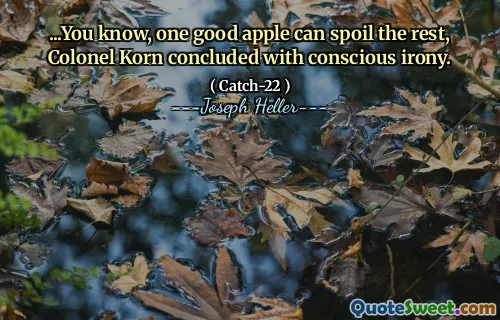
If consultants followed their own advice, they wouldn't tell anyone.
This quote captures an intriguing paradox about consultants and their roles. Consultants are often hired for their expertise, guidance, and solutions to complex problems. However, this quote suggests that if consultants genuinely practiced the wisdom they give to others, their approach might be so self-sufficient and effective that they would feel no need to share it or to sell it as a service. It hints at a possible tension or irony: consultants may be advising others on what they themselves find difficult to follow or acknowledge. The statement can be viewed as a critique of cliché or generic advice, implying that true insight might be proprietary or difficult to apply universally, even by the experts who deliver it.
Furthermore, the quote speaks to the nature of consulting as a profession — it is an external input often bought because internal parties either cannot or will not act effectively on certain information. If consultants fully internalized and acted on their recommendations, there might be no need for consultations or even an audience for their advice. It echoes a suspicion about the performative aspect of consulting, where advice may sometimes be more about maintaining roles and revenues than about transformative change.
However, the statement can also be interpreted with a grain of humor, poking fun at the idea that advice is easier given than taken—a timeless human truth. Consultants might find their own insights challenging to apply objectively to themselves. Overall, the quote encourages reflection on authenticity, application of wisdom, and the nuances involved in advising others while managing personal or organizational complexities.
---Grant McLachlan---







